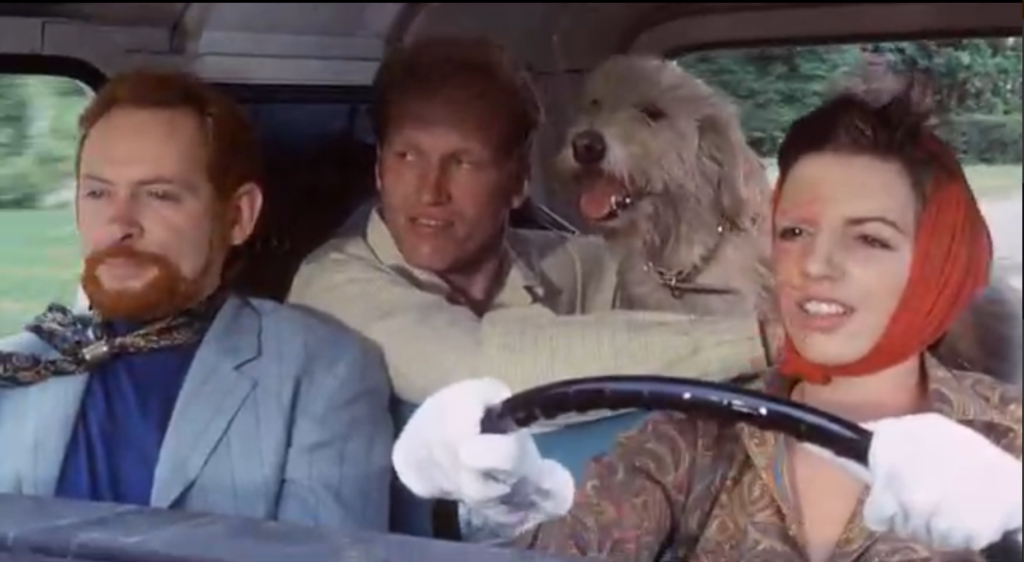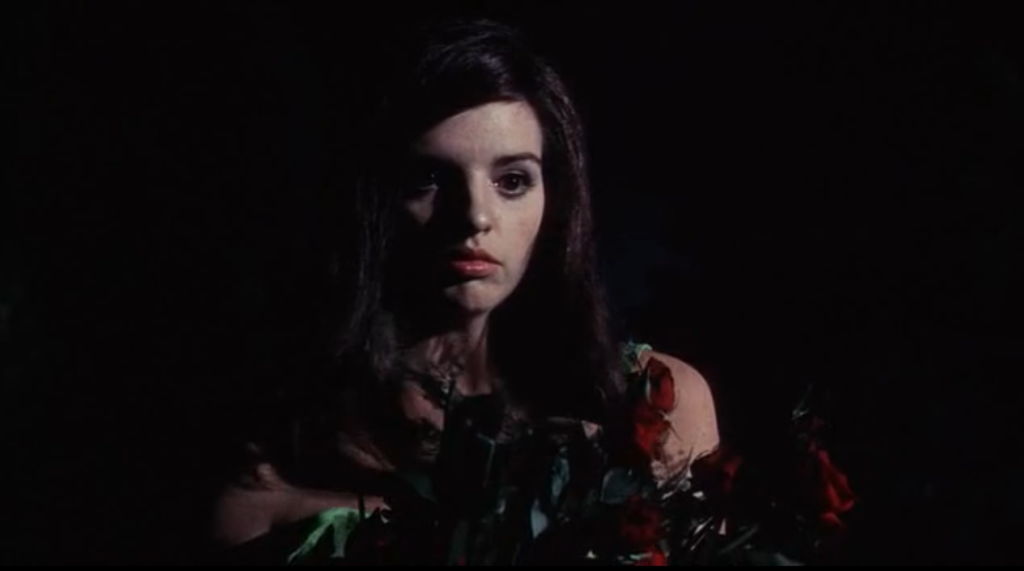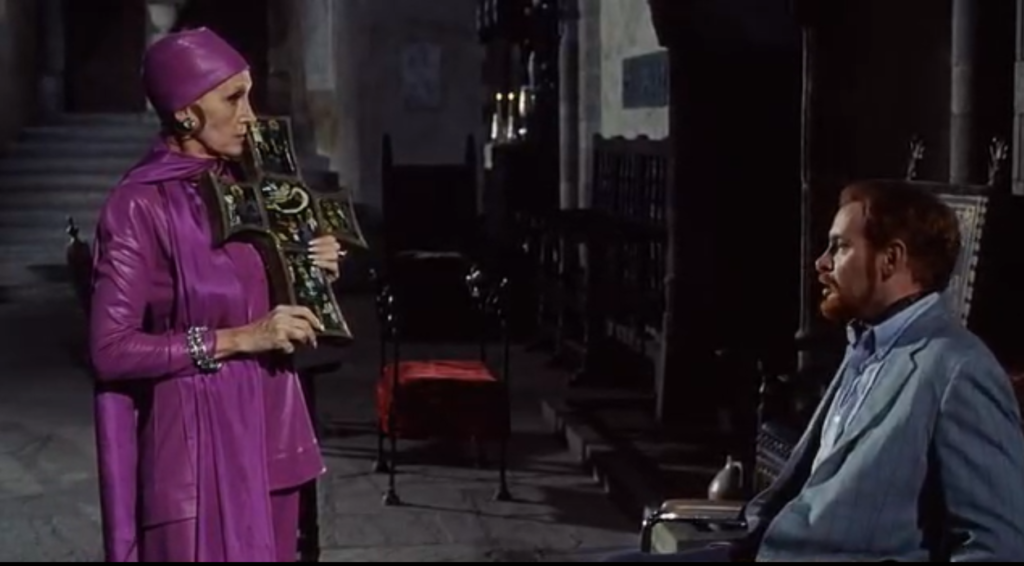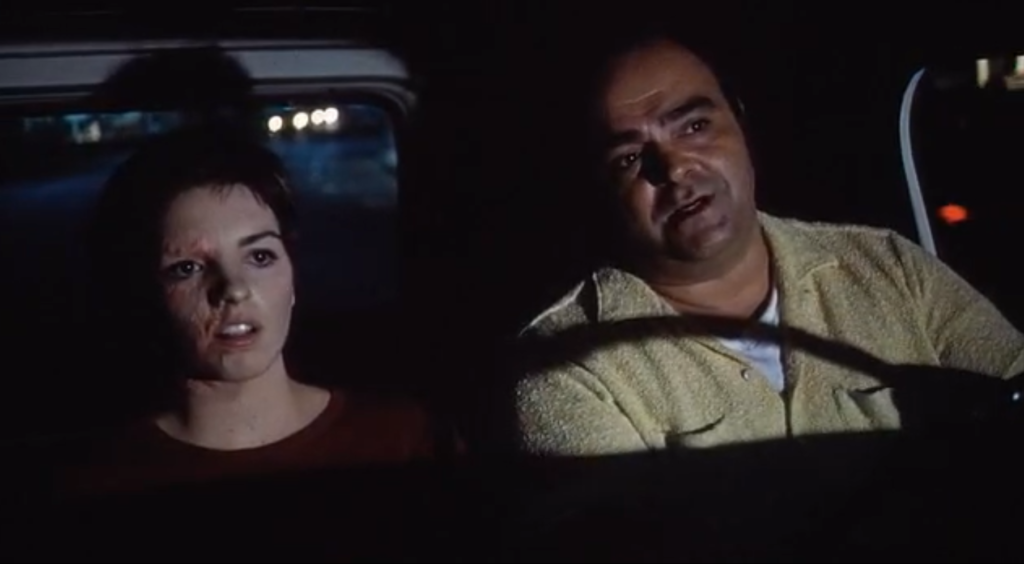|
Genres, Themes, Actors, and Directors:
- Disabilities
- Disfigured Faces
- Liza Minnelli Films
- Misfits
- Otto Preminger Films
Review:
Based on a novel by Marjorie Kellogg, Tell Me That You Love Me, Junie Moon is one among several oddities in Otto Preminger’s late-life directorial career, when he was making movies so far removed from his earlier successes — such as Laura (1944), The Man With the Golden Arm (1955), and Anatomy of a Murder (1959) — that it’s honestly challenging to associate them with the same individual. While nowhere near as bizarre as Skidoo (1969), or as tawdrily melodramatic as Hurry Sundown (1967), … Junie Moon (even its title smacks of kitschy-coo) unfortunately presents itself as intentionally kooky — the type of insufferable story about lovable misfits banding together which indie directors these days seem to churn out in spades.

We’re made privy to each character’s “sordid” background story through dramatic flashbacks (beginning with a surreally scored scene in which we see how the once-beautiful Minnelli came to receive her tragic burns):

The remainder of the insipidly scripted film is simply concerned with detailing how they come to (marginally) accept themselves and find (temporary) happiness. Kay Thompson appears in near-cameo as the trio’s brusque and eccentric landlord:

… while James Coco is given a pathetically underdeveloped role as a fishmonger with an inexplicable crush on Minnelli.

Redeeming Qualities and Moments:
Must See?
No; this one is simply a curiosity, and only a must-see for diehard Minnelli or Preminger fans.
Links:
|





One thought on “Tell Me That You Love Me, Junie Moon (1970)”
Not a must.
The good news is it’s a whole lot better than ‘Skidoo’. The bad news is that doesn’t say a whole lot.
It’s certainly a rather frustrating film experience. The actors are trying their best. But the script is episodic and character-based – neither is necessarily a bad thing except that the result is disjointed and the characters don’t really change once we’ve met them. So what we’re left with is this status quo of three emotionally scarred ‘misfits’ supporting each other while living together. Under the circumstances, there’s just nowhere for the movie to go, so there’s not much of a movie. If the structure were different (oh, say, if all three had jobs instead of just Howard – or something), there might be more of a dramatic thrust.
I don’t find Coco’s character all that under-developed but the role is basically warm and could have been integrated more. (It’s a little ridiculous that, at one point, his character has to check the dictionary to find out what ‘sodomy’ means.) Thompson’s inclusion is a definite missed opportunity, starting out with an intriguing entrance and then soon disappearing. Given the least to do (tho it’s nice to see her here) is character actress Anne Revere as a social worker.
As for the leads, Howard has the most difficulty with a role that seems to call for more subtext. Moore (a stage/film director who directed, among other things, ‘Murder by Death’ and the original stage production of ‘The Boys in the Band’) unfortunately comes off like a director who should probably not try to act. (I saw a few of his stage productions and he did a fine job directing them.) Minnelli is in-and-out as Junie Moon. It’s not a bad performance – again, considering the script is not a huge help to anybody – but apparently making this film was rough for her on most counts: she did not get along with Preminger (reportedly) and her mother died during filming. In the film’s penultimate scene, Minnelli is called on to grieve with a mixture of rage: that moment is an important one, and it appears to be all too real.